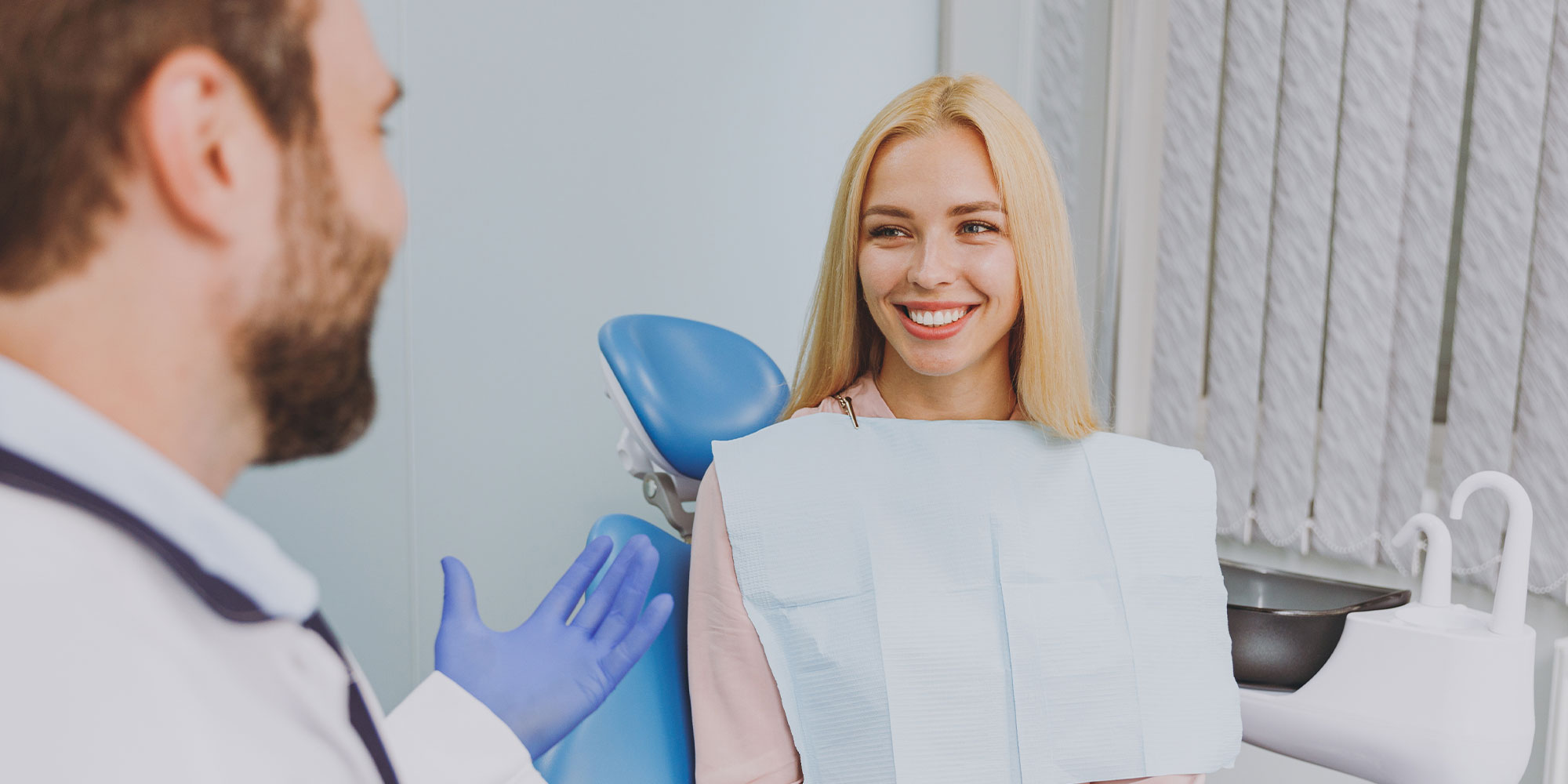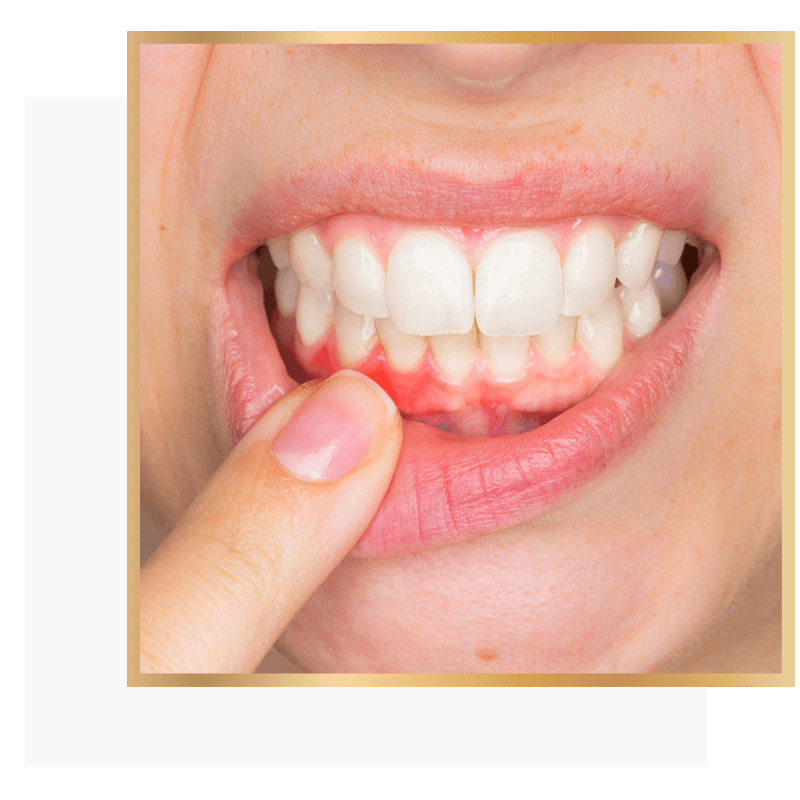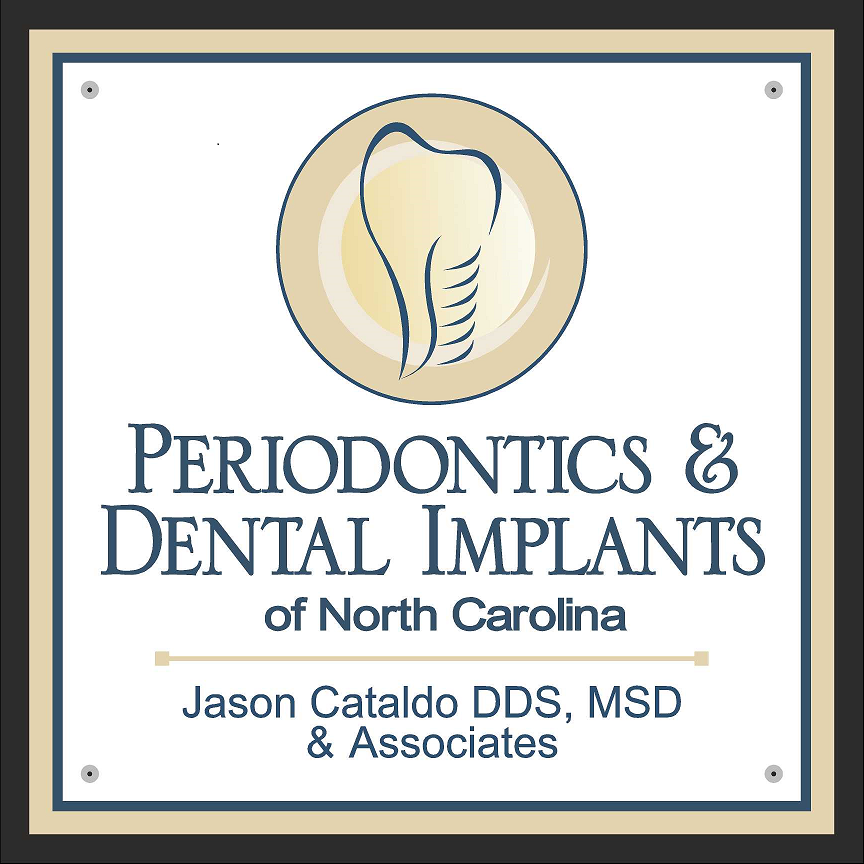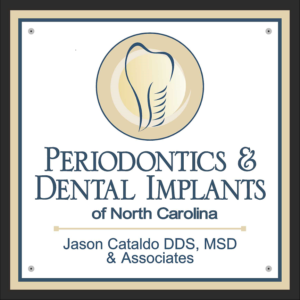Gum Disease Treatment - Morrisville, Durham, & Raleigh, NC
Personalized Care Deeper Than the Surface

Treat Your Gums to the Expert Care They Deserve

The Warning Signs of Gum Disease
- Red, swollen, or tender gums
- Bleeding gums when brushing or flossing
- Dental plaque buildup (sticky biofilm on teeth)
- Receding gum tissue
- Sensitive or loose teeth
- Persistent halitosis (bad breath)
- A change in the way teeth fit together when biting
Restoring Healthy Gums is Essential for a Healthy You
Visiting your dentist regularly and when you first notice changes in your soft tissue can help prevent gum disease from inflicting damage to your soft tissue, bones, and teeth. A comprehensive exam and assessment of your gum tissue can resolve gingivitis and stop the progression of gum disease. Although poor oral hygiene is the number one cause of gum disease and is an entirely modifiable risk factor, it’s essential to schedule more frequent visits if you have a genetic predisposition, systemic diseases (e.g., cardiovascular disease, diabetes, or rheumatoid arthritis), or use tobacco.
Your gum health is our top priority at Periodontics and Dental Implants of North Carolina, and we never want financial worries to get in the way of taking care of your smile foundation. To make restorative gum disease treatment in Durham, NC, Raleigh, NC, and Morrisville, NC, accessible to anyone who needs it, we accept many insurance plans and partner with third-party financing companies.

Our Restorative Soft Tissue Treatments
This non-surgical, two-part deep cleaning is typically the first-line gum disease treatment in Durham, NC, Raleigh, NC, and Morrisville, NC. First, our periodontist scales beneath your gum line to remove plaque and other bacterial toxins from periodontal pockets. The tooth roots are smoothed during root planing to prevent future plaque or toxins from adhering to the surface.
While semi-annual cleanings from a hygienist are typically adequate for most people, a deeper cleaning is often necessary if you have gum disease. Periodontal maintenance visits from our periodontist are scheduled after scaling and root planing, usually every three to four months. Removing tartar buildup eradicates the dangerous bacterial growth that occurs with periodontal disease and helps keep your soft tissue healthy.
During an aesthetic cosmetic crown lengthening, excess gum and bone tissue are removed and reshaped to expose more of the natural tooth surface to reduce the appearance of a gummy smile.
Less often, crown lengthening is used to remove excess gum tissue to decrease the depth of periodontal pockets caused by gum disease. In addition, functional crown lengthening may be necessary if a tooth is decayed or broken below the gum line or has insufficient structure to place a dental crown or bridge.
If you have more severe periodontal disease that can’t be resolved with scaling and root planning, a gingivectomy may be required. During a gingivectomy, our periodontist numbs the area, makes small incisions, and then carefully removes and reshapes loose, diseased gum tissue to reduce the depth of periodontal pockets. After removing the tissue, a protective substance is placed over your gums to aid in healing.
Gum grafting at Periodontics and Dental Implants of North Carolina involves suturing donor tissue in areas of gum recession to correct aesthetic and functional issues. While gum recession can cause an unattractive smile, tooth root exposure can increase sensitivity and the risk of advanced gum disease, tooth loss, and bone deterioration. Donor tissue can be harvested from several sites in your mouth and placed using slightly different techniques, depending on your specific needs.
Osseous surgery (flap surgery) is only performed when other approaches haven’t effectively reduced the depth of periodontal pockets. After the area is numbed, an incision is made, and the gum tissue is lifted away from the tooth and the underlying bone to access the pocket directly. Any plaque buildup is thoroughly removed from the tooth surface, the bone is smoothed to prevent future bacteria growth, and then your gum tissue is trimmed and sutured back in place.
In your lower mouth, the frenum is located between the base of your tongue and the floor of the mouth. In the upper arch, the frenum is the tissue that connects your gums and upper lip. A lingual frenectomy (tongue-tie surgery) is primarily performed in children to resolve speech issues. A labial frenectomy (lip-tie surgery) is usually done to prevent a large gap between the two upper front teeth and the need for future orthodontics.
The Pinhole Surgical Technique (PST™) is a suture-free, minimally invasive technique to treat gum recession. During this gum rejuvenation procedure, our periodontist makes a small hole in your gum tissue with a needle, then uses special instruments to loosen the gum tissue and place it over recessed areas. Collagen material is placed over the treated area to stabilize and enhance healing.
LANAP is a minimally invasive treatment for moderate to severe periodontitis in Durham, NC, Raleigh, NC, and Morrisville, NC, that has damaged your gum and bone tissue. This FDA-approved treatment targets the source of inflammation without harming or removing healthy gum tissue.
It’s a proven therapy to slow attachment loss and decrease the size of periodontal pockets, thereby helping your body recover from the chronic periodontal infection and regrow healthy tissue and bone.
Peri-implantitis is characterized by the loss of bone around dental implants. The LAPIP protocol uses a specific wavelength of the PerioLase® MVP-7™ laser to treat peri-implantitis and prevent ailing implants from failing. The laser gently removes infected tissue and vaporizes bacteria deep around the dental implant while leaving healthy tissue intact and able to regenerate.


